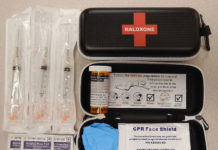Researchers sought to help develop effective early prevention and intervention strategies for at-risk adolescents with substance use disorders (SUDs) by focusing on specific brain patterns and risk factors associated with the nervous system, in a recent study published in the journal Current Opinion in Behavioral Sciences.
The study determined that a relationship between SUD development and inhibitory control (psychiatric and behavioral disorders) occurs because of activations and disturbances of a particular part of the brain. Neurological activations and disturbances due to substance use cause dysfunction in the part of the brain used for planning complex cognitive behavior, personality expression, decision making and moderating social behavior.
The authors cited several clinical studies that suggested a higher risk for the development of SUDs is associated with certain factors, including learned or developed behaviors as well as a family history of SUDs, psychiatric disorders, and behavioral disorders such as impaired inhibitory control or attention deficit hyperactivity disorder (ADHD).
As the body and mind undergo rapid maturation during formative years, these factors can influence and make one more susceptible to partake in risky and sometimes dangerous behaviors that lead to academic and/or social failures that are linked with SUDs.
MRI research suggested that these risk markers, neurological activations and disturbances directly affect and impair social, physical, and mental functions. Noting the early signs of neurological activity and risk markers can predict the development of SUDs among at-risk adolescents.
The authors included previous research that found children with alcoholic or drug-addicted biological parents who had been adopted at birth or placed into foster care, were also more vulnerable to develop a SUD due to their innate genetic resistance to the effects of alcohol.
SUDs develop differently among those who inherit it genetically from… (continue reading)
















